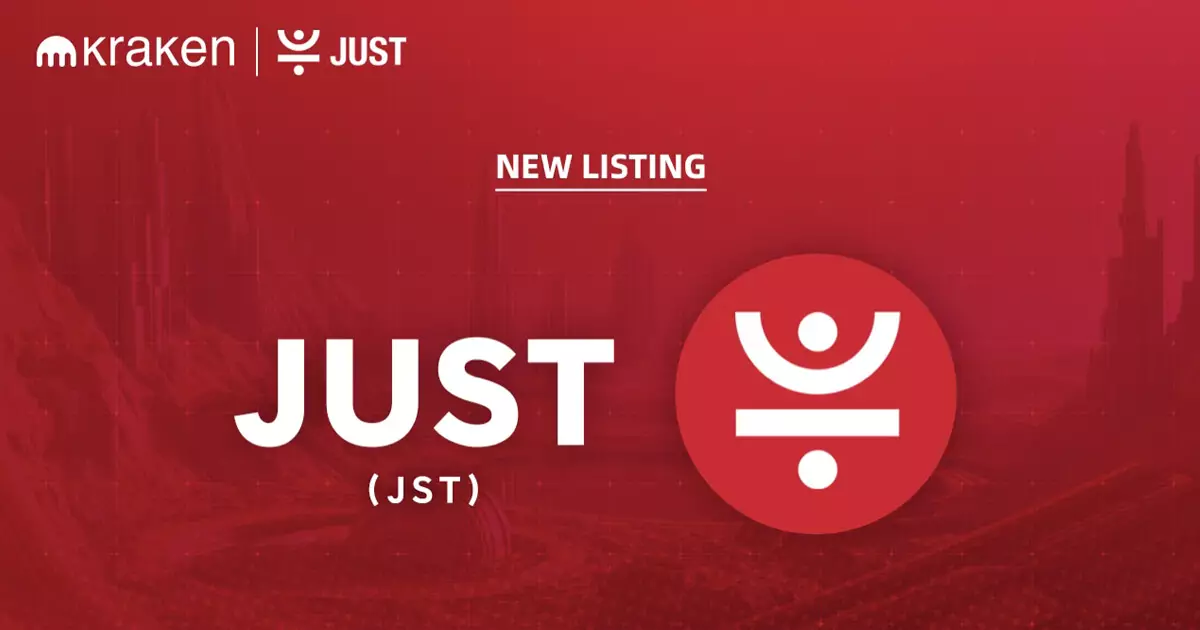In a move that reverberates through the cryptocurrency sphere, Kraken has recently added JUST (JST) to its platform, solidifying its status as a reputable exchange. While some may view this as a mere addition to the platform’s repertoire, it symbolizes much more than that—it highlights the serious potential that the decentralized finance (DeFi) landscape holds. JUST is not merely a token; it represents the underpinning of an entire ecosystem designed to disrupt conventional financial systems. With over $310 million in market capitalization and a staggering Total Value Locked (TVL) exceeding $8 billion, it’s time for skeptics to rethink their stance on DeFi assets.
Why JUST Matters
The JUST ecosystem, built on the TRON blockchain, is paving the way for decentralized alternatives to traditional finance. By offering a suite of services that include JustStable and JustLend, it is creating a holistic financial landscape. Unlike traditional financial institutions that come with heavy overheads and red tape, JUST leverages smart contracts to facilitate transactions efficiently. This is freedom from the shackles of traditional banking, offering users an opportunity for financial sovereignty and autonomy.
However, the sheer scale of the $90,000 airdrop campaign attached to the Kraken listing is evidence of the growing aggressiveness of these crypto projects. While this move may attract attention, it also raises questions about sustainability and whether such incentives can be maintained in the long run. Could it signify a push to manufacture excitement rather than letting intrinsic value speak for itself?
Market Confidence or Speculation?
The confidence that Kraken is demonstrating by listing JST shouldn’t be underestimated, but it’s also essential to examine the sentiment surrounding this move. Would a reputable exchange be willing to offer such a token if the groundswell of utility were purely speculative? Or is this merely a calculated risk, hoping to ride the waves of market exuberance? In the fast-paced world of cryptocurrencies, skepticism is often dismissed as fear-mongering, yet a discerning perspective is vital.
While some analysts herald the launch on Kraken as a stamp of legitimacy, we must ask ourselves: does this really change the game or is it simply wrapping an attractive bow around a potentially volatile investment? The implications for both investors and the broader TRON ecosystem are indeed significant, but caution should not be thrown to the wind.
Governance vs. Centralization
The narrative surrounding decentralized governance is gradually gaining traction with platforms like JustLend DAO. Here, users are supposedly granted the power to participate in governance and utilize their assets for collective benefits. Yet, can we genuinely classify this as decentralization, or is it an illusion that serves to pacify users while real power remains elsewhere?
The fact remains that in any ecosystems, true decentralization is a difficult balancing act. Users need a say, but effective governance often leads to centralizing tendencies that challenge the very principles of decentralized finance. The introduction of JST within this framework raises an important question: how democratic will this system remain if critical decisions become concentrated among a few influential players?
The Road Ahead
As we delve deeper into this newly forged relationship between Kraken and JUST, it becomes clear that both opportunities and challenges lie ahead. The listing on Kraken may provide the much-needed visibility for JST, but it also invites scrutiny of its actual utility in the DeFi space. In a world increasingly dominated by economic uncertainty and inflation, the promise of cryptocurrencies represents hope for some, yet caution for others. Ultimately, understanding the intricacies inherent in this partnership will determine whether users can truly harness the transformative power of decentralized finance.

